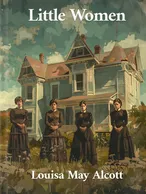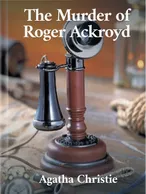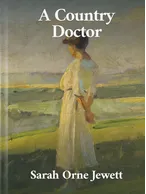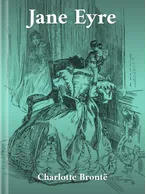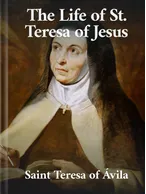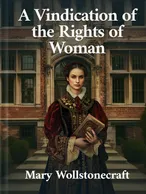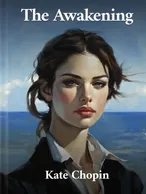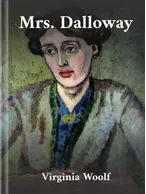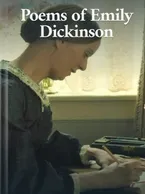Celebrating Women's Day. Influential Women Writers and Their Notable Works
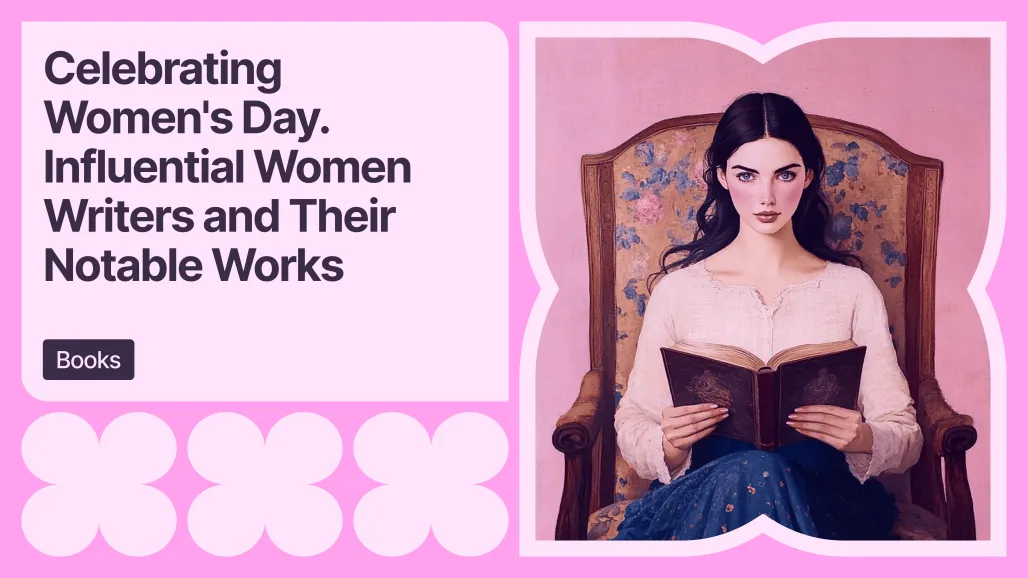
Celebrate Women's Day with influential books by female writers who shaped literature, from Alcott to Woolf, Dickinson, and beyond!
1. “Little Women” by Louisa May Alcott
2. “The Murder of Roger Ackroyd” by Agatha Christie
3. “A Country Doctor” by Sarah Orne Jewett
4. “Jane Eyre” by Charlotte Brontë
5. “The Life of St. Teresa of Jesus” by Teresa of Ávila
6. “A Vindication of the Rights of Woman” by Mary Wollstonecraft
7. “The Awakening” by Kate Chopin
8. “Mrs. Dalloway” by Virginia Woolf
9. “The Railway Children” by Edith Nesbit
10. “Poems by Emily Dickinson”
Conclusion
As Women's Day approaches, it's an opportune time to honor the remarkable contributions of women writers whose works have shaped literature and society. Below is a curated list of notable books by women authors available on WholeReader, each accompanied by insights into their significance and impact.
1. “Little Women” by Louisa May Alcott
“Little Women” follows the lives of the four March sisters—Meg, Jo, Beth, and Amy—as they navigate the challenges of growing up during the Civil War era. The novel explores themes of family, independence, and personal growth.
Alcott's portrayal of strong, multifaceted female characters was groundbreaking for its time. The novel emphasizes the importance of women's choices and ambitions, inspiring generations of readers to pursue their dreams.

2. “The Murder of Roger Ackroyd” by Agatha Christie
This iconic detective novel follows Hercule Poirot as he investigates the mysterious murder of Roger Ackroyd, a wealthy man who was about to uncover a scandal. The novel is famous for its unexpected twist and masterful use of the unreliable narrator.
Published in 1926, The Murder of Roger Ackroyd is considered one of Christie's most innovative and daring works. The novel revolutionized the detective genre with its shocking narrative structure and intricate plotting. Christie, often called the “Queen of Crime,” remains one of the most widely read and influential writers of all time.

3. “A Country Doctor” by Sarah Orne Jewett
This novel tells the story of Nan Prince, a young woman who defies societal expectations to pursue a career in medicine, guided by her guardian, Dr. Leslie.
Jewett's work highlights the challenges faced by women in professions dominated by men. Her realistic portrayal of rural life and strong female protagonists contributed to regional literature and inspired future feminist narratives.

4. “Jane Eyre” by Charlotte Brontë
Jane Eyre follows the life of its eponymous heroine, an orphaned girl who rises from a harsh upbringing to become a governess at Thornfield Hall. There, she encounters the enigmatic Mr. Rochester, leading to a complex narrative exploring love, independence, and morality.
Published in 1847, Jane Eyre is celebrated for its pioneering feminist themes. The novel challenges 19th-century gender roles by presenting Jane as a strong, self-reliant woman who values her autonomy and moral principles over societal expectations. Unlike many female protagonists of the era, Jane refuses to compromise her dignity, making Jane Eyre a landmark novel in feminist literature.

5. “The Life of St. Teresa of Jesus” by Teresa of Ávila
An autobiographical account detailing the spiritual journey and experiences of St. Teresa, a Spanish nun and mystic who played a pivotal role in reforming the Carmelite Order.
St. Teresa's writings provide profound insights into mystical theology and the contemplative life. Her work has been influential in both religious and literary contexts, showcasing the depth of women's spiritual and intellectual contributions.

6. “A Vindication of the Rights of Woman” by Mary Wollstonecraft
This seminal work is a passionate defense of women's rights, advocating for equality and education for women. Wollstonecraft argues that women are not naturally inferior to men but are only perceived as such due to a lack of education.
Published in 1792, this groundbreaking text laid the foundation for modern feminist thought, challenging the societal norms of the 18th century and advocating for women's empowerment.

7. “The Awakening” by Kate Chopin
“The Awakening” tells the story of Edna Pontellier, a woman who embarks on a journey of self-discovery and challenges societal norms by seeking personal freedom and independence.
Published in 1899, the novel was controversial for its portrayal of women's desires and autonomy. Chopin's exploration of feminine identity and liberation has since been recognized as a precursor to modern feminist literature.

8. “Mrs. Dalloway” by Virginia Woolf
“Mrs. Dalloway” follows a day in the life of Clarissa Dalloway, a high-society woman in post-World War I England, as she prepares for a party she is hosting that evening.
Woolf's innovative use of stream-of-consciousness narrative and exploration of time and consciousness revolutionized modern fiction. The novel delves into themes of mental health, identity, and the complexities of human experience.

9. “The Railway Children” by Edith Nesbit
This classic children's novel follows three siblings—Roberta, Peter, and Phyllis—who move to the countryside after their father is mysteriously taken away. As they adapt to their new life near the railway, they embark on adventures, form friendships, and uncover the truth about their father’s disappearance.
Edith Nesbit was a pioneering feminist and co-founder of the Fabian Society, advocating for social justice and gender equality. Her progressive views extended into her literature, where she crafted independent, intelligent, and adventurous female characters, challenging the traditional roles of women in children's fiction. Her modern approach to storytelling influenced later children's literature, emphasizing strong family bonds and moral integrity. The book’s themes of social justice and empathy remain relevant, making it an enduring classic.

10. “Poems by Emily Dickinson”
Emily Dickinson, one of the most influential poets in American literature, wrote nearly 1,800 poems, many of which were discovered after her death. Her poetry explores themes of nature, love, death, and the human soul, often in short yet profound verses.
Dickinson’s poetry revolutionized the form, with unconventional punctuation, slant rhymes, and deep introspection. Her work reflects a deeply personal yet universally resonant exploration of existence. Her minimalist yet powerful style influenced generations of poets, making her an essential voice in literary history.
I shall not live in vain;
If I can ease one life the aching,
Or cool one pain,
Or help one fainting robin
Unto his nest again,
I shall not live in vain.

Conclusion
Women writers have shaped literature in profound ways, challenging societal norms, redefining genres, and giving voice to the female experience across history. The works featured in this list showcase the resilience, creativity, and intellectual depth of women who pushed boundaries and inspired change through their writing.
From Charlotte Brontë’s fiercely independent Jane Eyre to Mary Wollstonecraft’s revolutionary call for women’s rights, these books are more than literary masterpieces—they are milestones in the fight for female empowerment and equality.
However, these are just a few examples of the countless women who have left an indelible mark on literature. Other remarkable women authors whose works deserve recognition include:
- Jane Austen, whose novels like Pride and Prejudice and Emma broke away from traditional romantic tropes and offered sharp critiques of social class, marriage, and women's autonomy.
- George Eliot, who defied gendered expectations of her time and wrote deeply intellectual novels like Middlemarch, exploring ambition, morality, and women’s roles in society.
- Emily and Anne Brontë, whose novels Wuthering Heights and The Tenant of Wildfell Hall introduced strong, rebellious female protagonists who defied convention.
- Mary Shelley, the visionary mind behind Frankenstein, one of the earliest and most influential science fiction novels.
- Alice Dunbar-Nelson, a trailblazing African American writer and activist whose works reflected race, gender, and social justice themes.
- Katherine Mansfield, who revolutionized the modern short story with her psychologically rich and emotionally nuanced narratives.
- Edith Wharton, the first woman to win the Pulitzer Prize for Fiction, whose novel The Age of Innocence explores the rigid constraints placed on women in high society.
- Elizabeth Gaskell, who shed light on industrialization, class struggles, and women’s autonomy in works like North and South and Cranford.
Each of these writers contributed to literature in unique and groundbreaking ways, and their works continue to be essential reading for those seeking powerful female perspectives.
This Women’s Day, we encourage you to celebrate and honor these literary pioneers by exploring their works, learning from their insights, and appreciating their enduring legacy. Whether through poetry, novels, essays, or plays, these women have given us stories that transcend time, proving that literature is not only a reflection of society but also a force for change.
Which of these books will you read next?
